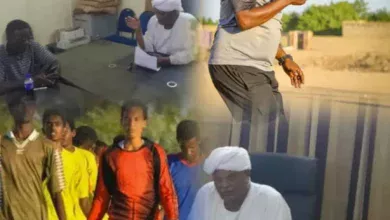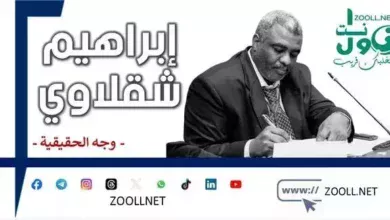Secrets of the Negotiations on a Draft Security Council Resolution on El Fasher: In-Depth Analysis and Long-Term Repercussions – Something for the Homeland – ✍️ Ing Salah Ghariba

The escalation of events in the Darfur region casts a dark shadow over the international community, as the UN Security Council meets to discuss a draft resolution aimed at defusing the crisis in the town of El Fasher, the largest city in the North Darfur region. These meetings come amid growing fears of a worsening humanitarian crisis and an expansion of the conflict, which threatens to destabilize Sudan and the entire region.
Negotiations on the draft resolution revealed the depth of differences among Security Council member states, as major points of contention emerged, reflecting divergent positions and interests. Some countries, led by Russia and China, considered the initial draft of the draft resolution. The draft represented an overreaction to the seriousness of the situation and called for the publication of a statement from the journalist. On the other hand, Western countries, such as the United States, have sought to maintain the rigor of the text and ensure that concrete measures are taken to end the violence and protect civilians, while Russia and Other countries proposed broadening the scope of the draft resolution. to include other conflict areas in Sudan, such as El Obeid and Kadugli, with the aim of resolving the crisis comprehensively. While Western countries have focused on the rapid developments in El Fasher, as it is the epicenter of the current conflict.
The issue of withdrawal of combatants on all sides who threaten the safety and security of civilians has sparked intense debate. Russia has reservations about a global call for the withdrawal of fighters, preferring to focus on the Sudanese government's responsibility in protecting civilians. While other countries called for the withdrawal of all combatants without exception, to ensure a safe environment for civilians, the draft resolution's call to provide safe corridors for civilians was opposed by Russia and other countries, which demanded the removal of a reference calling for UN intervention. monitoring of these corridors. A compromise was found by replacing this reference with an invitation to the Secretary-General to make recommendations for the protection of civilians.
Russia has opposed any equality between Sudanese authorities and other parties to the conflict in resolving humanitarian issues, emphasizing the role of the legitimate government in distributing aid. While other countries have sought to broaden the range of actors to facilitate aid delivery, including local and international humanitarian organizations. The reopening of the Adre border post has also sparked debate over Sudan's sovereignty and humanitarian access, with some countries expressing reservations about it.
Russia and other countries opposed submitting additional reports focused on El Fasher, while calling for the inclusion of a clause on external interventions in Sudan and their impact on the conflict. A compromise was reached, namely a request to the Secretary-General to report on the implementation of all elements of resolution 2715.
These points of contention demonstrate the complexity of the crisis in Darfur and the divergence of interests between the member states of the Security Council. Although the negotiations managed to reach compromises on some issues, fundamental points of contention remain, raising concerns about the resolution's effectiveness in resolving the crisis on the ground. The draft resolution can be considered a positive step towards resolving the situation in El Fasher. , but it falls far short of meeting the enormous challenges facing the region. The effectiveness of the resolution will depend on the commitment of all parties to its provisions and the ability of the international community to monitor its implementation and hold violators accountable.
The situation in Darfur remains extremely fragile and Palestinian civilians continue to suffer. Addressing this crisis requires a concerted international effort and concrete measures






